This morning nearly 25,000 Venezuelans will cross the Simon Bolivar bridge into Colombia in search of work and a hot meal. Most will return in the evening with extra food for their families if they are lucky. They make the trip hoping to earn money peddling goods on the street, seeking routine medical care, or standing in line for hours to receive one of the thousands of free meals served daily by churches and non-profit organizations. The bridge, a piece of shared infrastructure by which 80% of trade goods pass between the two countries, has become a humanitarian lifeline for those trying to escape the Venezuelan crisis. Recent surveys suggest 93% of Venezuelans cannot afford to purchase food and hospitals there lack 95% of medical supplies needed to provide basic care. The cost of Venezuela’s failed Bolivarian Revolution, a phrase coined by the late President Hugo Chavez, is being paid by the citizens it promised to protect, and the growing spillover into Colombia threatens to turn a Venezuelan problem into a regional one.
The Bolivarian Revolution began rather inauspiciously in 1992 when then-Lieutenant Colonel Hugo Chavez led an unsuccessful military coup to oust the democratically elected president. Released from prison two years later, Chavez went on to win the 1999 election as a populist fringe candidate under a socialist ideology he called “Chavismo”. In a case of extraordinarily bad timing, his anointed successor, a former bus driver-turned-Finance Minister by the name Nicholas Maduro, assumed the presidency following Chavez’s death in 2013. Within a year, the global drop in oil prices triggered an economic crisis in Venezuela, catalyzing the failure of the socialist experiment and intensifying social unrest. President Maduro responded to the resultant popular criticism with a heavy hand, using the military to violently suppress protests and working internally to subvert Venezuela’s democratic institutions.
The situation in Venezuela represents a complete reversal of fortunes from two decades ago. Beginning in the 1970s, nearly four million Colombians fled to Venezuela to escape violence and terror wrought by the drug cartels and the FARC. In 1999, the flow of migrants began to steadily reverse, and 1.5 million people have since left Venezuela for Colombia. Two recent events illustrate the ironic role reversal. On the 15th of August, the FARC officially completed a peaceful disarmament process and was incorporated into the Colombian democratic system as a political party. Then, just three days later, the pro-Maduro Constituent Assembly in Venezuela seized control of the opposition-led Congress, removing yet another democratic impediment to his rule. The move sparked regional outrage, but engendered little surprise as the Venezuelan political apparatus moved one step closer to authoritarianism.
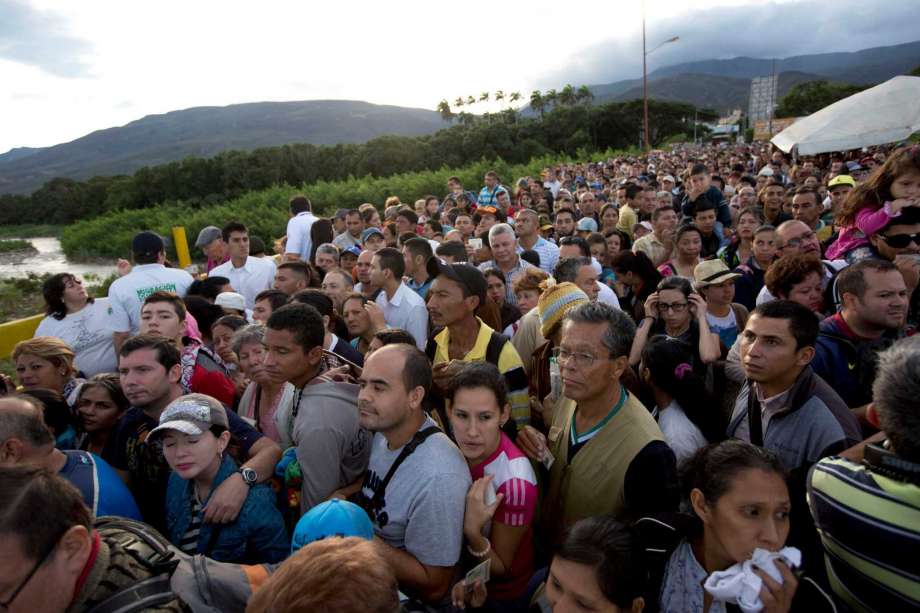
Socialist Expropriation and Crime
Venezuela controls some of the world’s largest crude oil reserves, a critical piece in a calculated strategy to safeguard the Chavez regime by distributing wealth. The scheme has been remarkably successful over the last 18 years and is probably the only reason his successor is still in power, but corruption, subjugation of private industry, and ill-fated socialist policies have depleted the nation’s wealth. Upon his election in 1999, Chavez nationalized much of Venezuela’s industry. By 2011 Venezuela was receiving only a $5M share of Latin America’s total $150M in annual foreign investment and the number of private businesses had decreased from 14,000 to roughly 9,000. Oil accounted for 95% of Venezuela’s exports at the time, but the billions of dollars earned in the post-9/11 oil boom have vanished. Most of the money was funneled to political supporters and a large share was invested in strengthening the military.
Four years after Chavez’s death, the question remains whether the military will stay loyal to Maduro, to the Revolution, or abandon them both in favor of the opposition. Maduro’s ability to continue lining the pockets of his generals and politicians dwindles by the day. His support is already weakening in the lower ranks of the military where the effects of the economic crisis are most palpable. Worsening conditions increase the potential for a military uprising against Maduro in favor of a leader more capable of advancing the Chavismo ideology. Considering also the historical influence of Cuba’s Castro regime and ongoing support from Russia and Iran, it stands to reason Chavismo will endure even if Maduro’s political capital dries up.
Command of the lucrative illicit drug trade is also a factor. Throughout the Chavismo era, corrupt politicians profited from the trade by exploiting military and police fealty. The details of their corruption were published almost a decade ago when a seizure of data exposed integrated cocaine distribution networks between Venezuela and the United States. Notably, in 2016 two of Maduro’s nephews were convicted in the US for conspiracy to transport cocaine, suggesting possible ties to the President himself. If indeed Maduro is on the take, the growing scarcity of pay-off funds from other sources raises concern he may lose control over the illicit drug trade, leaving a vacuum that could lead to increased violence, volatility, and regional instability.
All-American Solutions
Despite President Trump’s recent refusal to rule out a “military option” in Venezuela, the United States lacks the domestic and international political capital to impose its will there. Furthermore, his intransigence on immigration and the proposed border wall with Mexico have not earned him additional support in a region where one-third of the population sees American power and influence as a major threat. During a recent Latin American tour, Vice President Mike Pence spent much of his time softening Trump’s message on Venezuela and assuring leaders Washington is open to a wide range of options including economic sanctions. Despite the assurances, Colombian President Juan Manuel Santos explicitly rejected the notion of a military response in a joint press conference with Pence, insisting Venezuela’s neighbors must use “other measures to bring about change in the country.” Clearly a more indirect and cooperative approach will be required if the United States wishes to influence the situation in Venezuela.
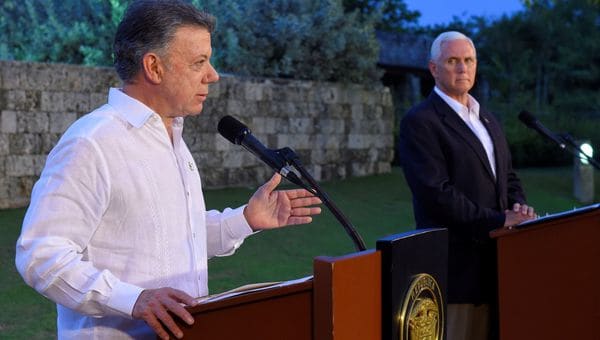
Despite President Santos’ strong stance, there is no reason to believe Latin America is capable of responding effectively on its own. Any admonishments of Maduro’s despotism by Venezuela’s neighbors are tempered by their own dogmatic respect for state sovereignty; a common paradox in a region composed of weak states with strong leaders. Additionally, domestic political concerns consume nearly every country in the region. Brazil is embroiled in its own government scandal and focused on economic and political instability. Argentina is still nursing an economic recovery after years of fiscal mismanagement under the Kirchners. Colombia is coming to terms with a difficult peace agreement with FARC revolutionaries and wants to keep growing economically. Chile, despite being an economic growth leader for a decade, has yet to truly find its voice in regional politics and continues to struggle with domestic political impediments. As is characteristic of Latin America, there is a lot of talk, but no coherent regional stance.
Throughout Latin America, citizens are bracing for the political and economic effects of an influx of Venezuelans seeking work, housing, and social assistance. Violent civil war is a concern, as is the resurgence of illicit transnational networks—a trend that had been on the decline in recent years thanks to progress in neighboring Colombia. A US military intervention would most certainly exacerbate existing regional security challenges. The only sustainable solution to this Bolivarian Devolution rests on the ability of Latin American states to look beyond their respective domestic challenges and respond with an uncharacteristic level of regional cohesion. To enable such a response, the United States should pursue collaborative regional solutions focused on mitigating the economic and social impacts of the growing humanitarian crisis.
The views expressed in this article are those of the authors and do not reflect the views of any government or private institution.

Major Patrick “TISL” Parrish is the Blogmaster and editor for the Affiliate Network. He is a US Air Force Officer and A-10C Weapons Instructor Pilot with combat tours in Afghanistan and Libya.
 Major Kirby “Fuel” Sanford is a US Air Force Officer and F-16 Instructor Pilot with combat experience in Syria, Iraq, and Afghanistan.
Major Kirby “Fuel” Sanford is a US Air Force Officer and F-16 Instructor Pilot with combat experience in Syria, Iraq, and Afghanistan.



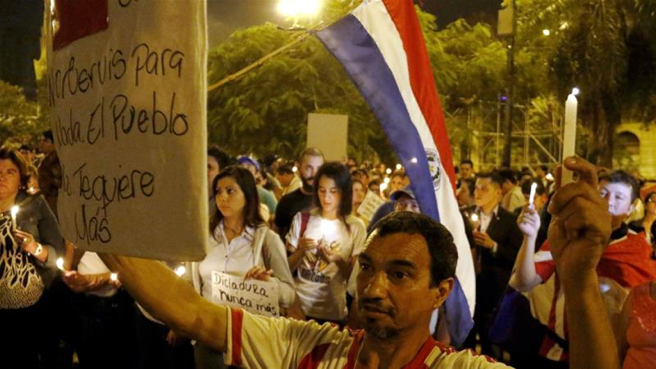
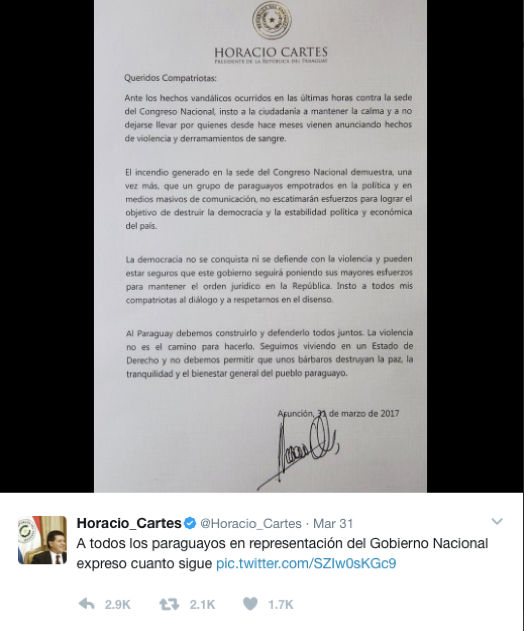
 Major Kirby “Fuel” Sanford is a U.S. Air Force F-16 Instructor Pilot with combat experience in Syria, Iraq, and Afghanistan. He is currently a master’s student in Buenos Aires, Argentina. The views expressed in this article are those of the author and do not reflect the official policy or position of the U.S. Air Force, the Department of Defense, or the U.S. Government.
Major Kirby “Fuel” Sanford is a U.S. Air Force F-16 Instructor Pilot with combat experience in Syria, Iraq, and Afghanistan. He is currently a master’s student in Buenos Aires, Argentina. The views expressed in this article are those of the author and do not reflect the official policy or position of the U.S. Air Force, the Department of Defense, or the U.S. Government.
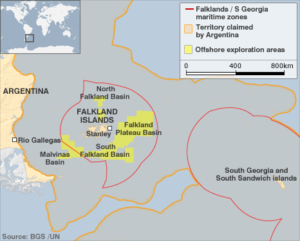
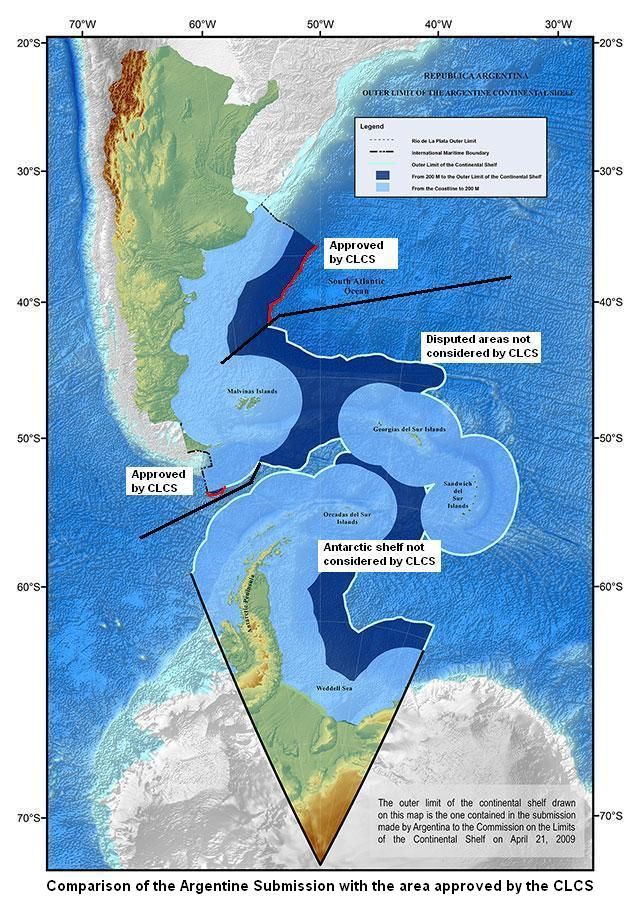
 CPT Jonathan Nielsen is a U.S. Army Infantry Officer with combat experience in multiple countries in the Middle East and extensive multinational training experience. He is currently attending the University of Belgrano in Buenos Aires. The views expressed in this article are those of the author and do not reflect the official policy or position of the U.S. Army, or the Department of Defense.
CPT Jonathan Nielsen is a U.S. Army Infantry Officer with combat experience in multiple countries in the Middle East and extensive multinational training experience. He is currently attending the University of Belgrano in Buenos Aires. The views expressed in this article are those of the author and do not reflect the official policy or position of the U.S. Army, or the Department of Defense.